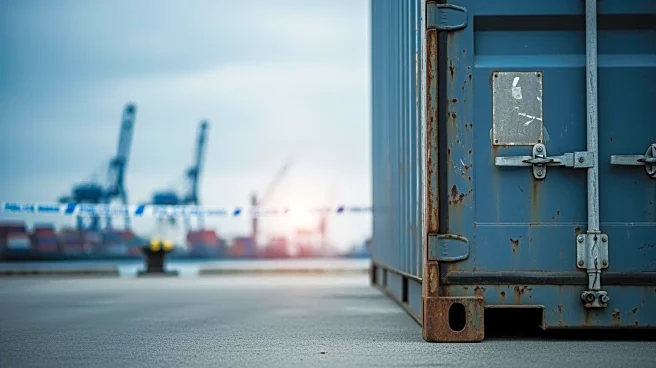What's Happening?
A recent survey conducted by Maersk reveals that four in five cargo owners across Europe expect supply chain disruptions to persist for at least two more years. The survey, which gathered feedback from over 900 companies, highlights ongoing struggles
with trade tensions, shifting tariff rules, and an unpredictable geopolitical climate. The findings indicate that 78% of respondents foresee geopolitical issues, trade tariffs, and global regulations impacting their operations until 2027. Nearly half of the participants expressed deep concern over the geopolitical climate, while supply chain challenges are already affecting business growth. In response, companies are diversifying their sourcing strategies, with three out of four businesses purchasing from multiple regions or planning to do so. Additionally, many are strengthening relationships with logistics partners and suppliers, investing in better visibility, and shifting to alternative trade routes.
Why It's Important?
The prolonged uncertainty surrounding the EU-US trade deal has significant implications for global trade and economic stability. The disruptions in supply chains could lead to increased costs and delays for businesses reliant on international trade, affecting profitability and competitiveness. As companies adapt by diversifying suppliers and routes, there may be shifts in global trade patterns, impacting industries such as manufacturing, retail, and logistics. The geopolitical tensions and tariff changes could also influence investment decisions, with businesses potentially delaying or altering plans due to the unpredictable environment. This situation underscores the need for strategic planning and flexibility in operations to mitigate risks associated with trade uncertainties.
What's Next?
As companies continue to navigate the challenges posed by trade uncertainties, they may increasingly focus on enhancing supply chain resilience through technology and strategic partnerships. The diversification of suppliers and trade routes could become more prevalent, potentially leading to new alliances and collaborations within the logistics sector. Policymakers and industry leaders may also seek to address the underlying geopolitical tensions and tariff issues to stabilize trade relations and foster economic growth. Monitoring developments in trade negotiations and regulatory changes will be crucial for businesses to adapt effectively to the evolving landscape.
















